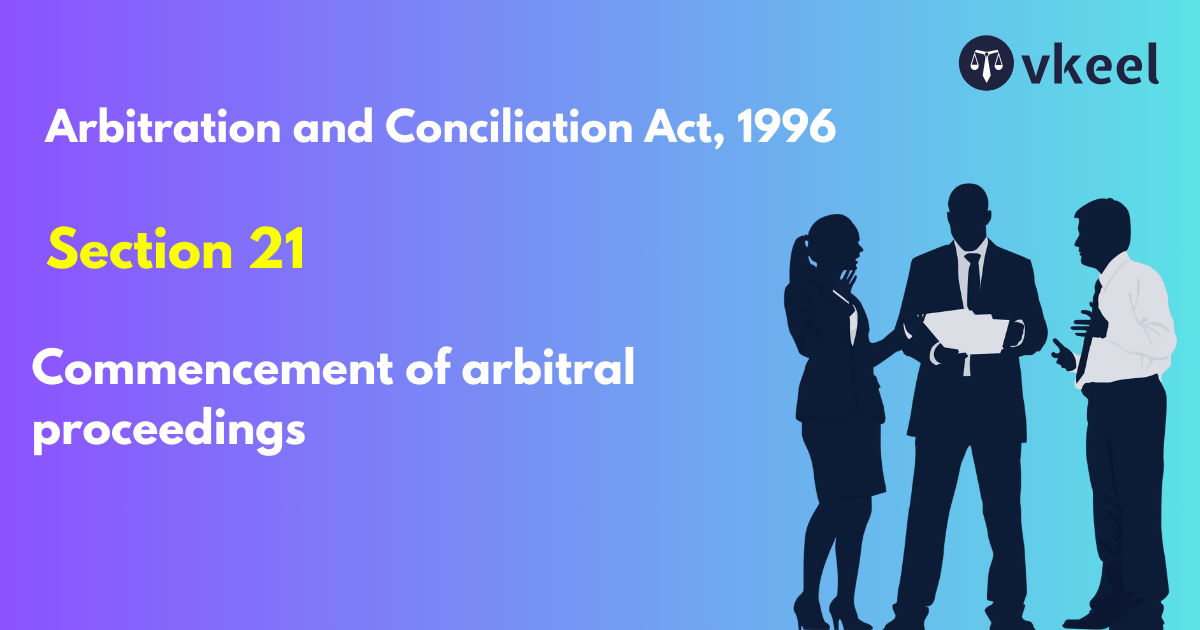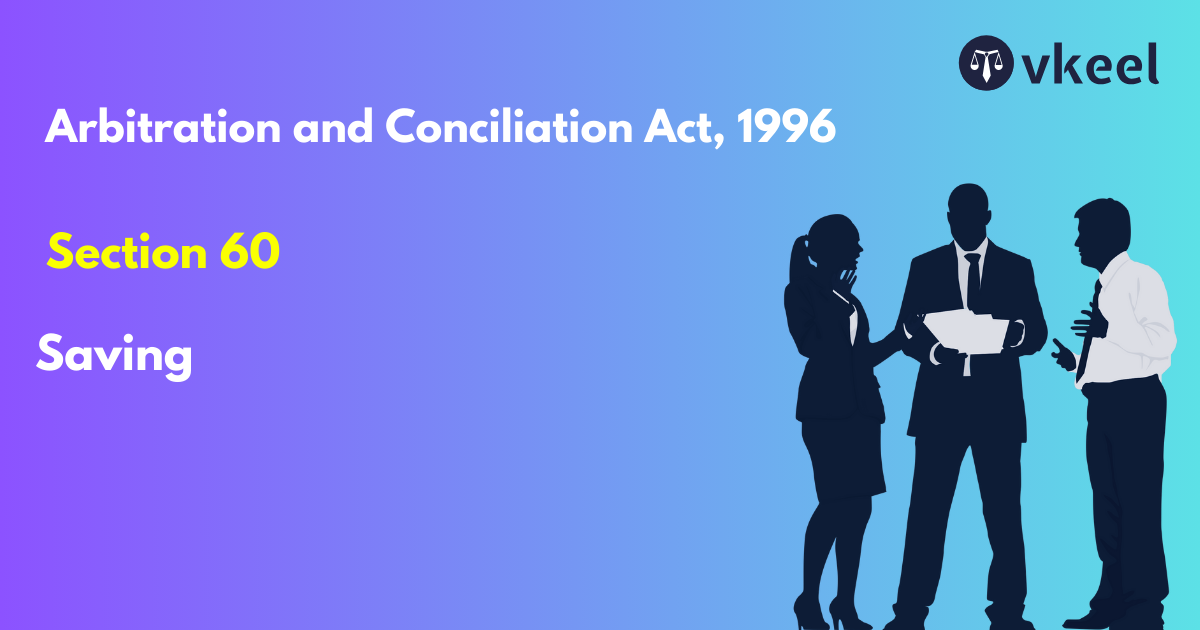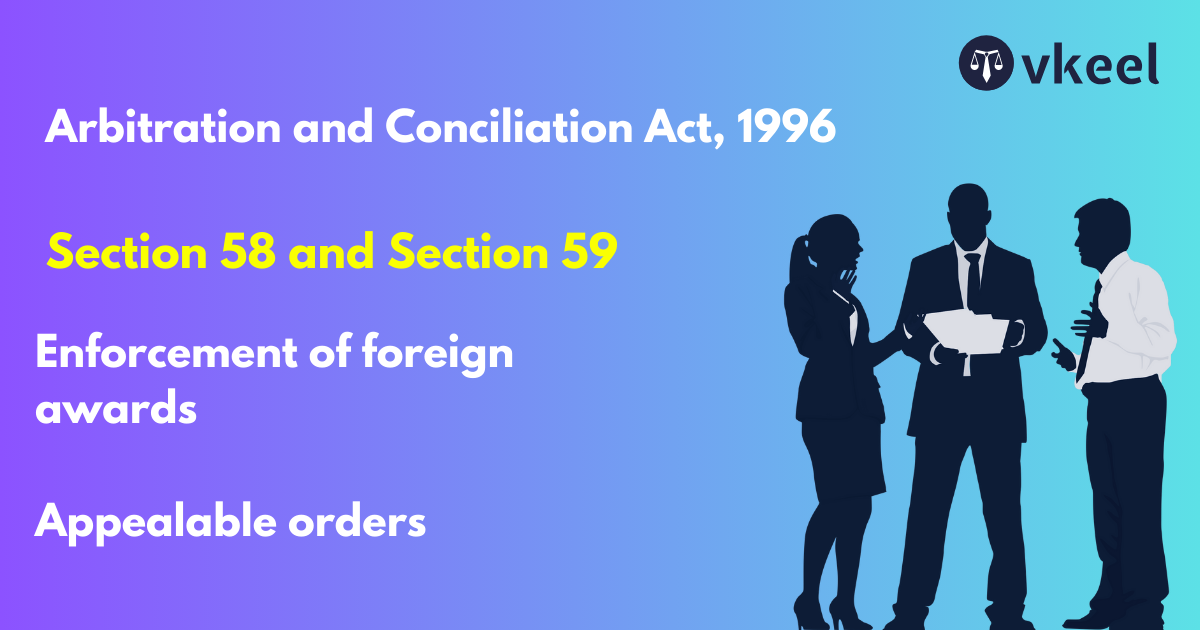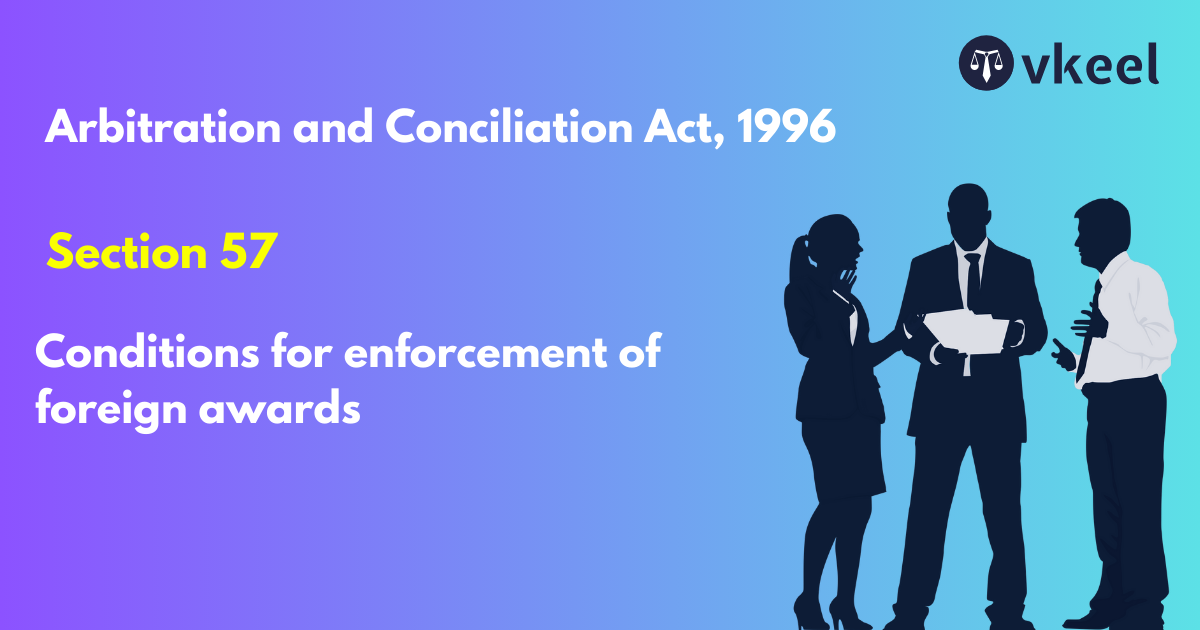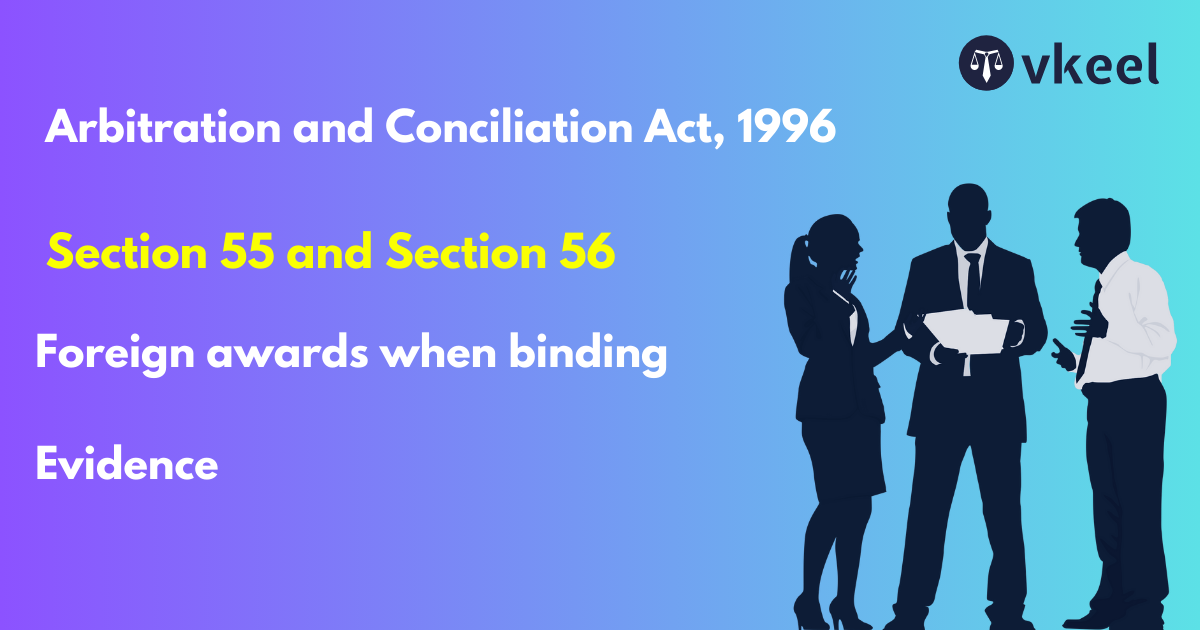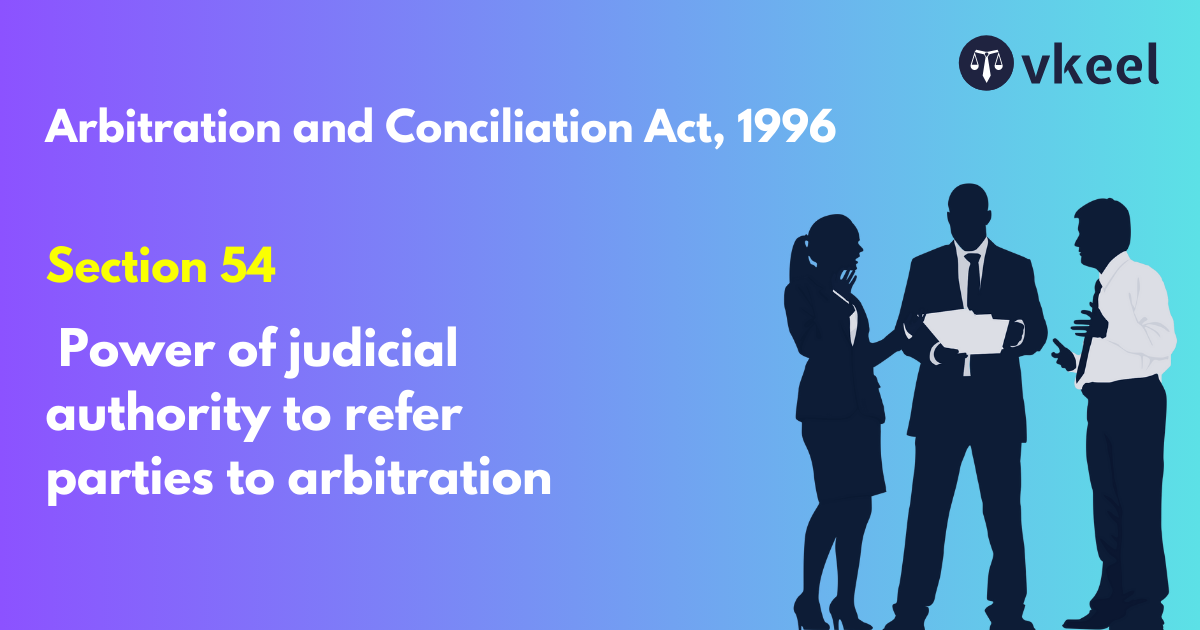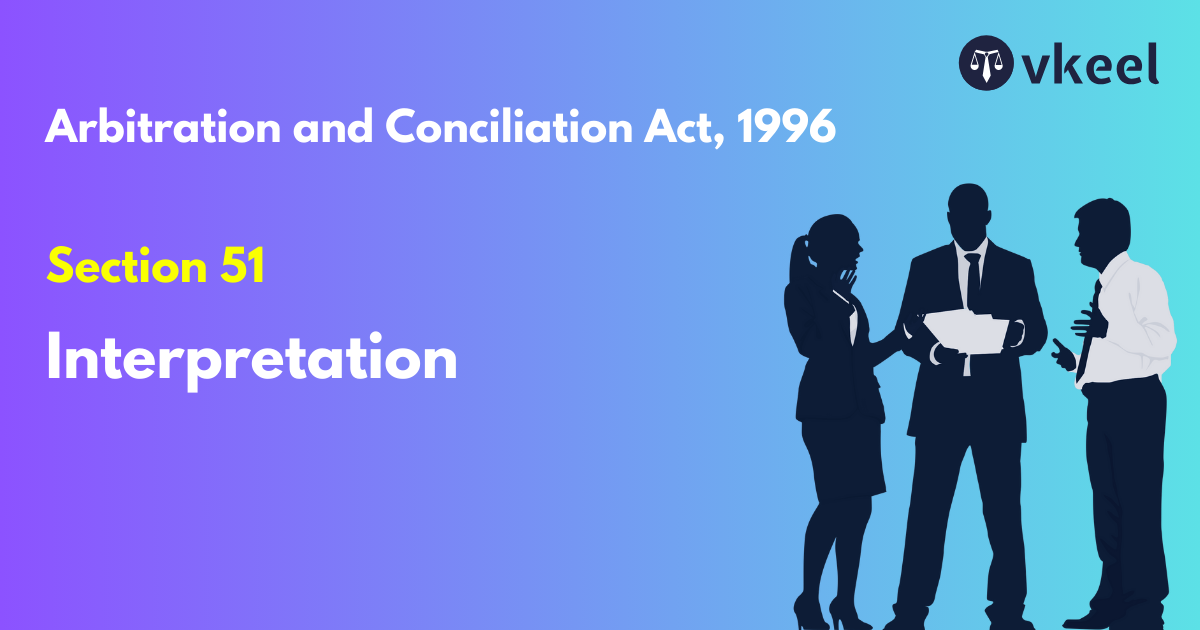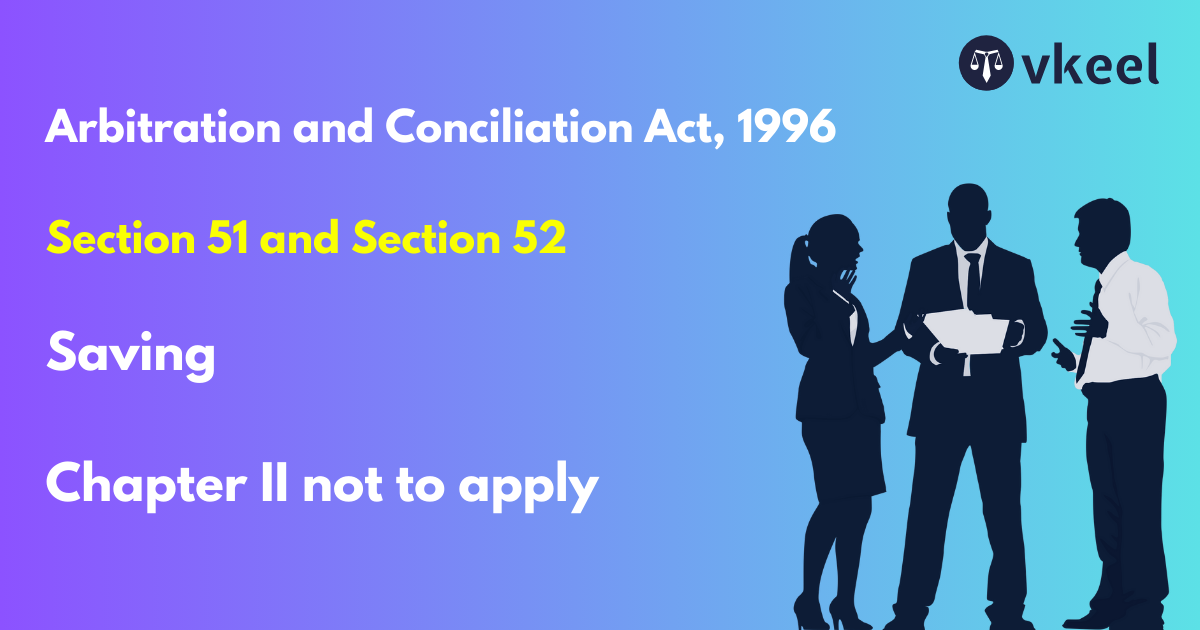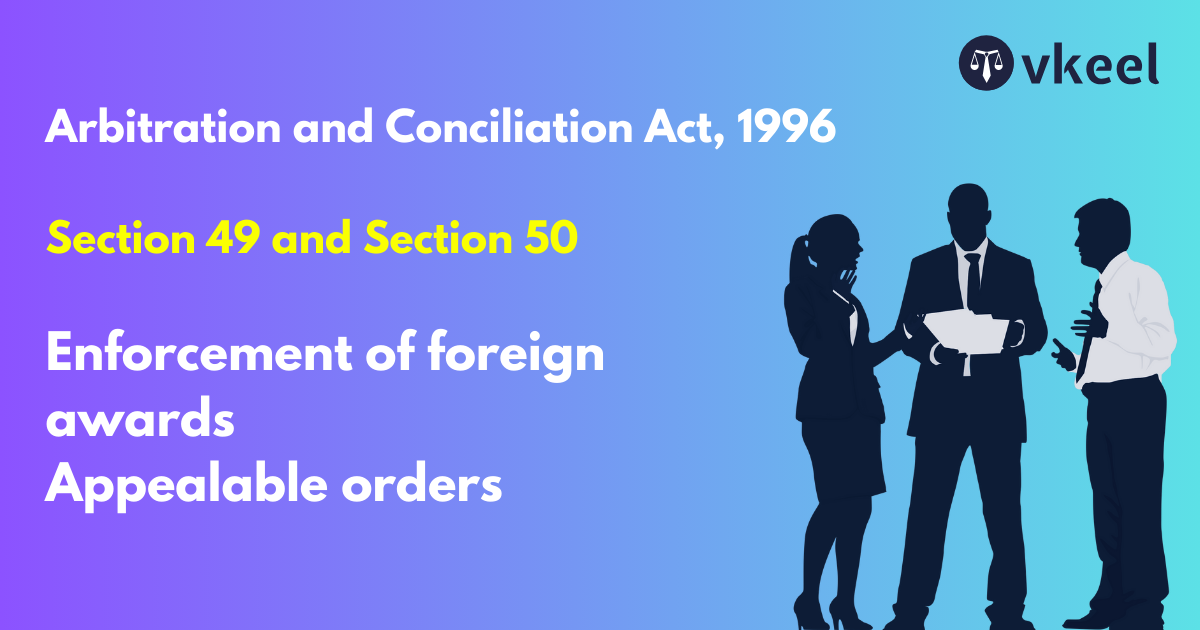Section 21: Arbitration and Conciliation Act,1996
By Nivedita Dhiman
Table of Contents
Introduction of Section 21
In view of section 21 of the act providing that the arbitration proceedings shall be deemed to commence on the date on which “a request for that dispute to be referred to arbitration is received by the respondent” the said confusion is cleared. Therefore, the purpose of section 21 of the act is to determine the date of commencement of the arbitration proceedings which is relevant mainly for deciding whether the claims of the claimant are barred by limitation or not. Section 21 plays a crucial rule as it sets the procedural aspects of arbitration and also setting clear guidelines for the parties to initiate the process of arbitration.
Section 21 of Arbitration and Conciliation act
Commencement of arbitral proceedings
Unless otherwise agreed by the parties, the arbitral proceedings in respect of a particular dispute commence on the date on which a request for that dispute to be referred to arbitration is received by the respondent.
Landmark Judgements of Section 21
BCCI vs Kochi Cricket Pvt Ltd, 2018
What is conspicuous by its absence in the second part is any reference to section 21 of the 1996 act. Whereas the first part refers only to arbitral proceedings before an arbitral tribunal, the second part refers to court proceedings “in relation to” arbitral proceedings, and it is the commencement of these court proceedings that is referred to in the second part of section 26, as the words “in relation to the arbitral proceedings” in the second part are not controlled by the application of section 21 of the 1996 act.
Ardee Infrastructure Pvt Ltd vs Anuradha Bhatia, 2017
This section bifurcates cases on the basis of the commencement of the arbitration proceedings being “prior” or “on or after” the date of commencement of the amendment act, 2015. This section takes within its fold every type of situation, which may arise in relation to arbitration proceedings, including both proceedings before the arbitral tribunal and court proceedings in relation thereto or connected therewith. In other words, the applicability of the amendment act would be applicable where the proceedings commenced after 23 October 2015 when the amendment act came into being.
Bombay Gas Co Ltd vs Parmeshwar Mittal,1998
An application under section 34 of the old act implies readiness and willingness of a party to go for arbitration, but it cannot be equated with a notice under section 21 of the new act which constitutes commencement of arbitral proceedings. The power to grant stay under section 34 of the 1940 act is essentially a discretionary power and the court may refuse the application for various reasons. Therefore, mere filing of an application under section 34 of the old act cannot amount to commencement of arbitral proceedings.
UOI vs Manoranjan Mandal, 2000
Where a party invoked the arbitration clause in august,1995 but the respondent did not appoint the arbitrator, the proceedings would be governed by the arbitration act, 1940 and not by 1996 act because this act came into existence only on 25 January 1996. The test whether the arbitral proceedings shall be governed by the provisions of the 1940 act or 1996 act would be determined keeping in view the date when notice for commencement of arbitral proceedings had been given by a party.
Tulip Hotels Pvt Ltd vs Trade Wings Ltd,2010
Date of commencement of arbitration and that of conciliation operate from different dates. While conciliation proceedings begin only after appointment of a conciliator but in case of arbitration, arbitral proceedings commerce in respect of a particular dispute when notice to that effect is received by the respondent.
Conclusion
The above-mentioned section of the arbitration and conciliation act plays a fundamental role in by governing the commencement of arbitral proceedings in India. A balanced approach is created that allows flexibility under the section and respects party autonomy while maintaining necessary procedural safeguards. This section helps in establishing a procedural roadmap for the process of arbitration.
Disclaimer:
The information provided in the article is for general informational purposes only, and is not intended to constitute legal advice or to be relied upon as a substitute for legal advice. Furthermore, any information contained in the article is not guaranteed to be current, complete or accurate. If you require legal advice or representation, you should contact an attorney or law firm directly. We are not responsible for any damages resulting from any reliance on the content of this website.

